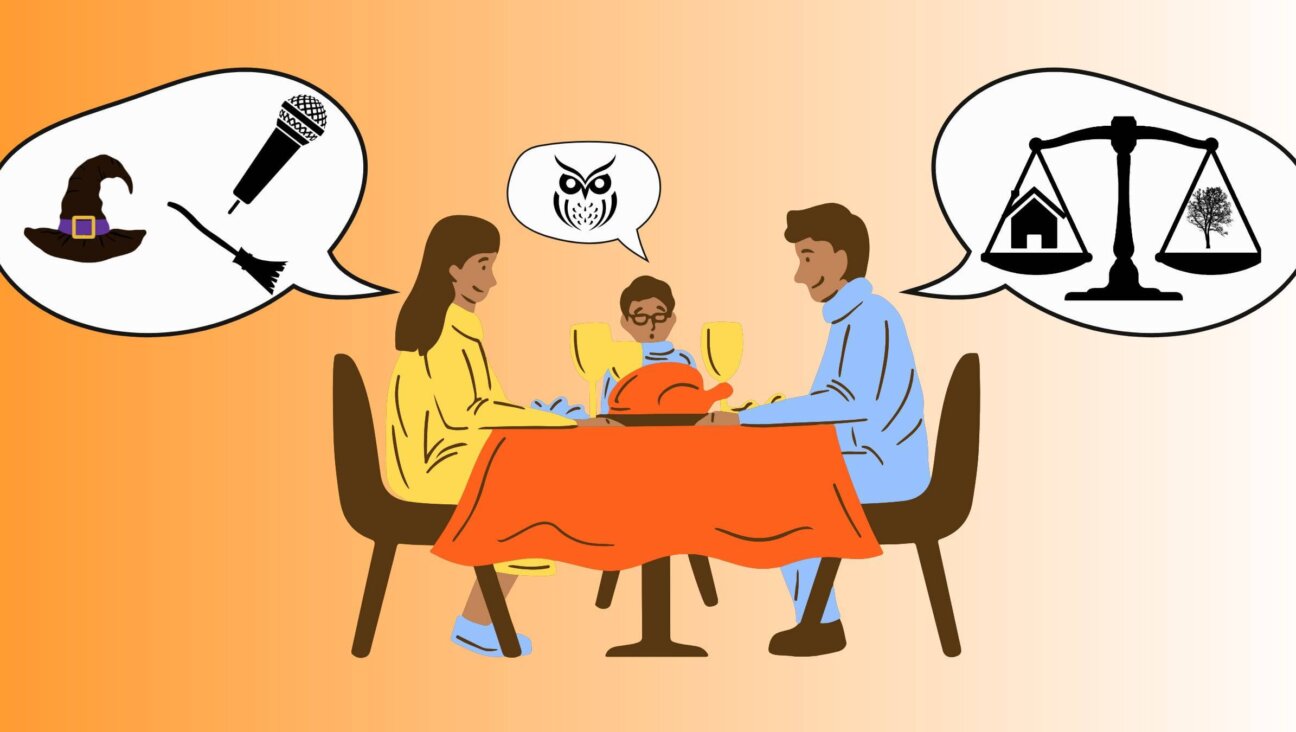Cuba Rejects U.N. Ruling on Alan Gross

Happier Days: Alan Gross, with his wife, Judy, in Jerusalem in 2005. Image by Gross Family
Cuba reacted angrily on Wednesday to a U.N. ruling that its imprisonment of American contractor Alan Gross was arbitrary and accused the United States of lying about his health.
Josefina Vidal, a Foreign Ministry official, said Cuba received a copy of the yet to be published decision by the U.N. Working Group on Arbitrary Detention on Tuesday, the third anniversary of the arrest of Gross and the same day the U.S. Senate passed a resolution demanding his release.
The ruling by the Geneva-based group has not been publicly released, but countries are often notified of decisions ahead of time. The group is part of a U.N. human rights body, but holds little power to enforce its ruling.
“Yesterday, December 4, the Cuban government received the opinion of this group terming Alan Gross’ detention arbitrary,” Vidal said.
She charged at a Havana news conference that the ruling came down unusually fast and blamed U.S. pressure. Vidal said the Cuban government responded to the decision on Wednesday, “demonstrating that the detention of Mr. Gross in no way can be classified as arbitrary.”
Gross, 63, has been jailed in Cuba since Dec. 3, 2009, and is serving a 15-year sentence for providing Internet gear to Cubans under a U.S. program that Cuba views as subversive.
His imprisonment halted a slight thaw in relations between the two old foes that began soon after President Barack Obama took office in January 2009.
A lawyer for the Gross family, Jared Genser, filed the complaint earlier this year with the working group.
Gross and his wife have also filed a $60 million lawsuit against the U.S. government and the company that hired him as part of a contract with the U.S. Agency for International Development.
In 2005, the same U.N. group ruled against the U.S. treatment of five Cuban agents jailed in the United States on spying charges. Four of the men remain in prison.
Cuba is widely believed to support the idea of a prisoner swap that would send Gross home in exchange for the four convicted Cuban spies, a deal the United States has repeatedly rejected.
‘MR. GROSS DOES NOT HAVE CANCER’
Vidal repeated Cuba’s interest in finding a negotiated solution to the two cases and called Washington’s refusal to talk “unrealistic and unsustainable.”
She also described assertions by the U.S. State Department that Gross’ health is deteriorating and that he may have cancer as “lies.”
“A team of world-class doctors have provided Mr. Gross with systematic attention since day one,” Vidal said.
“This team has a biopsy and other tests that demonstrate Mr. Gross does not have cancer or any other illness that threatens his life,” Vidal added.
In a statement, Genser repeated his call for an American doctor to be allowed access to Gross. “The easiest way this could be immediately put to rest is to allow an independent medical doctor to conduct a thorough examination of Mr. Gross,” he said.
Gross has said he went to Cuba only to help the island’s Jewish community, not for political purposes, and was working on a U.S. government project intended to increase the availability of Internet access for the Cuban-Jewish community.
Cuba charges Gross was working in Cuba for a U.S.-funded program to promote political change by increasing Internet access and the flow of communications. Cuba views such programs as part of long-standing U.S. attempts to topple the island’s communist government.
Cuba says Gross tried to keep his work undercover and was aware of its political aims, according to a leaked court document.
The court said it found evidence on flash drives and a computer confiscated during his arrest that Gross knew more than he admitted and took action to avoid detection, including using American tourists to bring Internet equipment to Cuba without telling them what it was for.
The gear included three satellite Internet terminals, or BGANs, along with BlackBerry phones, iPods and other electronics.
Information is tightly controlled on the Caribbean island, Internet use is limited and visitors are not allowed to carry satellite technology. (Editing by Kevin Gray and Peter Cooney)
A message from our CEO & publisher Rachel Fishman Feddersen

I hope you appreciated this article. Before you go, I’d like to ask you to please support the Forward’s award-winning, nonprofit journalism during this critical time.
We’ve set a goal to raise $260,000 by December 31. That’s an ambitious goal, but one that will give us the resources we need to invest in the high quality news, opinion, analysis and cultural coverage that isn’t available anywhere else.
If you feel inspired to make an impact, now is the time to give something back. Join us as a member at your most generous level.
— Rachel Fishman Feddersen, Publisher and CEO























